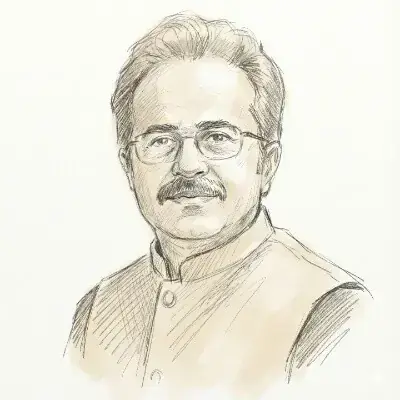ISLAMABAD: During an eight-hour trial on Thursday, the counsel for Finance Minister Ishaq Dar continued to point out discrepancies in the prosecution’s evidence and, during the cross-examination of a prosecution witness, found certain documents to have been tampered with.
The accountability court of Islamabad also finished recording the testimony of a second prosecution witness, Shahid Aziz of the National Investment Trust (NIT), who was produced before the court by special prosecutor Imran Shafiq.
Proceedings started around 8:15am and continued until 4pm, with a couple of intervals.
Mr Dar was accompanied to court by his cabinet colleagues Daniyal Aziz, Tariq Fazal Chaudhry, Anusha Rehman and Barrister Zafarullah Khan.
Next hearing on Oct 16; PPP demands finance minister step down on ‘moral grounds’
The ministers were quite active in the morning when proceedings began. But as the accountability court continued with its examination of a single witness until 1pm, the ministers seemingly lost the interest and took to resting their eyes in the courtroom.
National Accountability Bureau (NAB) prosecutors Wasiq Malik and Afzal Qureshi also took advantage of the witness’ lengthy testimony and napped for a while.
During the cross examination, defence counsel Khawaja Haris drew the court’s attention to an original document regarding Mr Dar’s investments which was produced by the witness, saying that it was different from the copy submitted to the court.
It emerged that the form carried stamps of two cities — Lahore and Islamabad — and seemed to have been tampered with.
When confronted with this detail, the witness said that while NIT kept the original form, a carbon copy was sent to Karachi, adding that the photocopy that was submitted to the court was sent to him by the Karachi office.
However, the court noted that the original and photocopy were different.
In his statement, the witness informed the court that after receiving the original, as well as photocopies of the documents from Karachi, he sent the same to the Lahore NAB.
“If a carbon copy is made from the original document, then why is the photocopy different from the original?” asked Khawaja Haris.
The witness, however, said it was routine practice to make corrections in such documents.
The witness told the court that Mr Dar invested Rs120 million in NIT, but withdrew the amount in January 2017.
During cross-examination, the witness confirmed that the investment was made in accordance with the company’s rules and the amount was refunded to Mr Dar, along with the profit, after deducting government taxes.
Another prosecution witness, Al-Baraka Bank Senior Vice-President Tariq Javed also recorded his statement. He also handed over documents regarding nine companies of the Hajvery Group, associated with Mr Dar.
During cross-questioning, Mr Javed admitted that he was neither the author, nor the custodian of most of the evidence he had produced before the court.
However, he claimed that the bank management had allowed him to trace the record of Mr Dar and the companies associated with him, but he could not produce any written orders in this regard.
He said that the management intimated him via email that he could produce the record at the next date of proceeding.
The accountability judge then put off further proceedings until Oct 16. The court also summoned another witness, Masoodul Ghani of the Habib Bank Limited, on the same date.
Moral grounds
Separately on Thursday, Pakistan Peoples Party leaders Nayyer Hussain Bukhari and Saleem Mandviwalla demanded that the finance minister step down “on moral grounds” after his indictment, alleging that Mr Dar had ruined the economy.
“It seems as if an economic crisis is being deliberately engineered,” Mr Mandviwalla claimed, adding that when the minister’s own subordinates were appearing as witnesses against him in the NAB references, he was well-placed to influence their testimony.
“This is why he is not resigning,” the former finance minister said.
Mr Bukhari said it was humiliating for the country that Ahsan Iqbal had to be sent to talk to international financial institutions in place of the finance minister.
“Morality demands that he should step down when incriminating evidence is available against him,” said Mr Bukhari, when asked why the minister should resign when he had not even been convicted.
Published in Dawn, October 13th, 2017




































